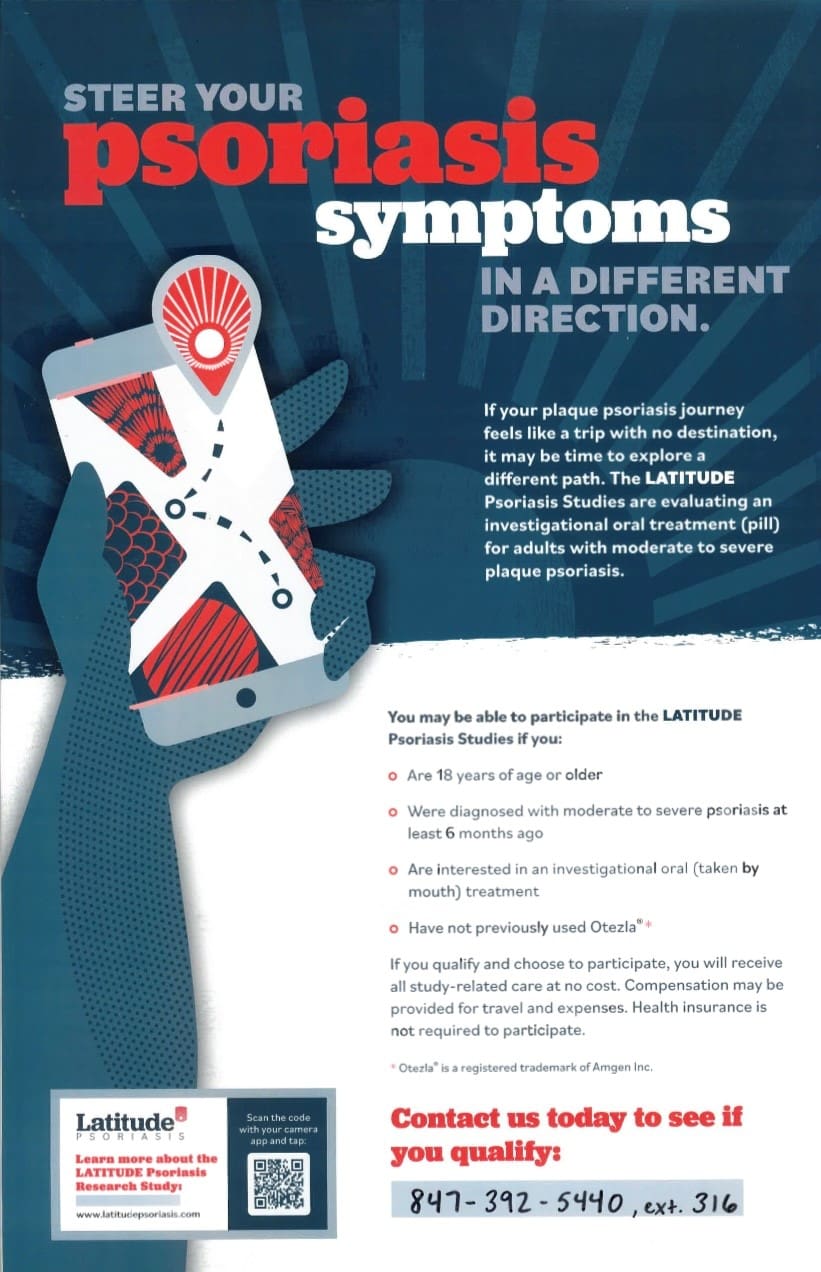Clinical Research
Your Participation is Needed for Clinical Research
Where are we heading in science?
Throughout history, we have learned about several Nobel Prize winners in the fields of medicine, physics, and chemistry. If you read more about these outstanding scientists, you will discover that their works and specialties were all connected with the prefix “bio”. There were biophysicists, biologists, bioengineers; all of whom study the deep and sophisticated behaviors of cells under various circumstances. What does the word “bio” mean? A Greek root, “bio” means “life”. Contrary to the chemical non-organic compound studies done in a lab, bio-studies reflect on analyses of living cells and their changes in behavior due to exposure to various elements.
It seems that medicine is heading in the same direction. We hear more and more about biologics and other bio-forms of treatment replacing synthetic forms created in a lab. While we learned how to select and isolate those tiny molecules from human tissue and use them to produce therapeutic materials to treat various diseases, we also know that there is so much more to discover and learn.

The Rewards of Discovery
Many medical scientists dedicated their lives to discovery. Even a select few earned a Nobel Prize as a reward and a way of receiving recognition for their dedication and hard work. However, the true reward comes when their discoveries find practical utilization that will save or improve lives.
Improvement in the quality of life for our patients is a commitment Arlington Dermatology strongly believes in. We have steadfast clinical research teams that assist in the development of novel treatments for skin and immune system disorders. Our reward comes from you, our patients. We are humbled when we hear how much we’ve helped in improving the quality of life or how we have contributed in preventing more serious skin conditions including skin cancer. Clear and healthy skin of our patients is our goal and reward for hours of hard work. Delivering the optimal choice of treatment is our desire and hope for all our patients.
Patient Testimonials
My first experience at AD Thursday was excellent. Dr Bukhalo, the receptionist, Elizabeth & Allison couldn’t have been more professional & accommodating. I never felt rushed. In fact they made me feel as though I’ve been going there for years. Arlington Dermatology is spacious facility, & well designed in a way which is quite relaxing. (I was nervous never being to a Dermatologist before) I’ve had 11 back surgeries going back to 2004. The reason why I mention this is because I’ve had countless hours spent in Dr, surgeon, hospital & p/t offices throughout the years. I never had such a smooth/comfortable experience from A to Z. I feel Arlington Dermatology needed special recognition for my first experience there. Thank you – Tammy C.
Clinical Research and Development
Developing new medication is called clinical research study or trial and it starts in the scientific lab working on, so called, pre-clinical experiments in applying new molecules to animals’ studies. Once those turn out positively promising, phase I of clinical research introduces the new drug to healthy volunteers who try it and escalate the dose of it in order to establish safety levels. Phase I studies are usually done in close outpatient or inpatient facilities, allowing for a high level of monitoring of the participating volunteers, their vital signs and blood testing. If the study is successful in phase I, pharmaceutical sponsors begin working on protocols for phase II. The drug is introduced to a small (100-200) group of patients with an actual medical condition, meeting all the criteria of participating from the safety perspective. For instance, a person with on-going chronic and untreated hypertension should not be a patient in a study due to unstable blood pressure and possible side effects related more to that unstable condition than the drug they are trying. Data from phase II studies is strictly monitored and constitutes a background to initiate phase III.
During phase III trials, the drug is usually introduced to a larger group of patients (500-600) and criteria of participation may be less restrictive.
Usually, it is already known how patients accepted the new drug in phase II, and phase III serves as an efficacy study. All phases of clinical research is conducted under control of FDA, Federal Drug Administration, a government institution responsible for the safety of all pharmaceutical products and devices distributed in the United States. Not too many of us participate in clinical research. Not too many doctors conduct trials. Running phase II or phase III studies requires a lot of time, training, and dedication to a detailed medical investigation. However, we all can help to make the process of developing new drugs easier and quicker. Finding patients qualifying for the studies can take months. By participating in clinical research, patients can speed up the processes of gathering data necessary to move to the next phase. They receive free medical examinations and treatment for their particular conditions according to the protocols of the trials. They can also first-hand observe and witness potential efficacy of the drug. Some pharmaceutical sponsors pay for the patients’ time and travel in a form of a stipend.
If you want to learn more about clinical research or would like to participate in studies related to skin conditions, please call Arlington Dermatology.
Active Clinical Trials
Adult Psoriasis
Adult & Pediatric Atopic Dermatitis
Registry
Psoriasis

Get Started
The research team of Dr. Michael Bukhalo study new medical solutions for psoriasis, eczema, acne, actinic keratosis, sun damage, and more. You can get more information about particular studies after you sign a consent prepared for a given study. The staff will provide you with general information how you can help and how you can be helped. To find out more information, call our office at 847-392-5440 and ask for any of our research team members.
